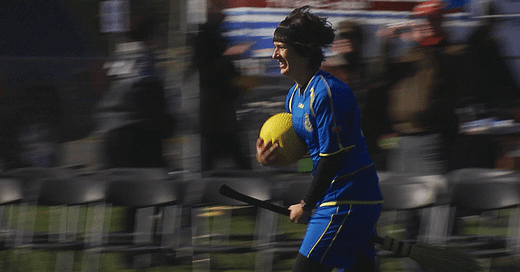‘Mudbloods’: The Quidditch Documentary That Fails To Fly
By Kristy Puchko

The crunch of brooms and bones. The roar of the crowd. The occasional cry of an owl. These were the sounds of my first Quidditch World Cup. Held in a forgotten corner of Manhattan, it was an affair that boasted college and community teams, cavorting mascots, wand-waving Harry Potter cosplayers, and those who came to gawk, like me. Who we…
Keep reading with a 7-day free trial
Subscribe to Nonfics to keep reading this post and get 7 days of free access to the full post archives.



